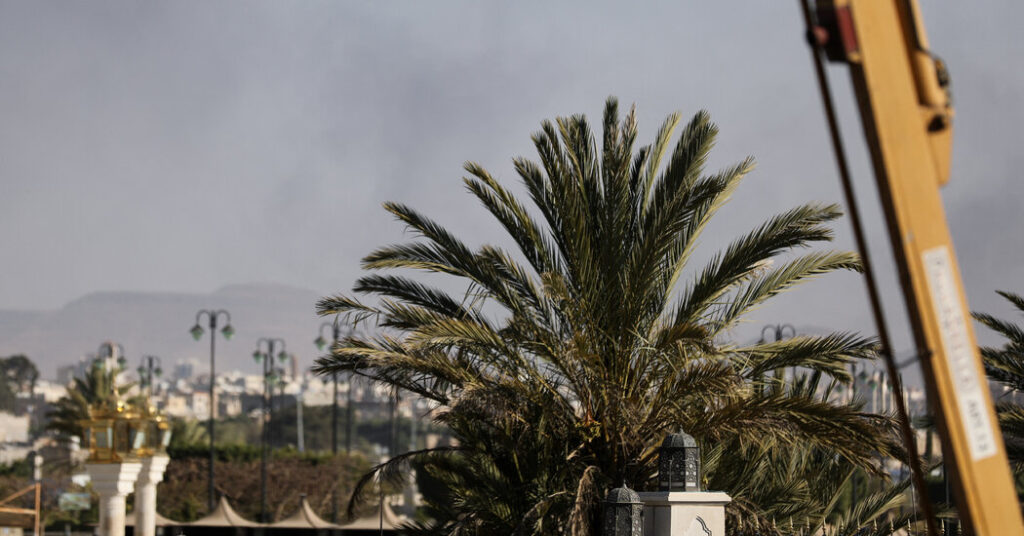Israeli warplanes bombed a port and power plant in Yemeni territory controlled by the Houthis on Friday, as Israeli warplanes bombed a port and power plant in Yemeni territory controlled by the Houthis, in an effort to persuade the Iranian-backed militant group to stop shelling Israeli and commercial ships in the Red Sea. It is the latest attempt to enforce this.
Israel has stepped up attacks on the Houthis in recent weeks in response to repeated attacks by Yemeni militias, which have fired on Israel in solidarity with Hamas in the Gaza Strip.
The US and UK have also repeatedly attacked Yemen to protect international waterways from Houthi attacks. However, it was never clear whether Israel and its allies could successfully force the Houthis to cease their attacks through a bombing campaign.
The Israeli air force bombed the Hizyaz power plant near the Houthi-controlled capital, Sana, not far from where thousands of Yemenis gathered for weekly solidarity rallies with the Palestinians. The Israeli military said in a statement that Yemen’s main oil export terminals, Hodeidah and Ras Isa ports, were also attacked.
Experts have warned that attacks on ports such as Hodeidah, a key transit route for essential goods in northern Yemen, could worsen what is already one of the world’s worst humanitarian crises. There is. Millions of people in Yemen, rocked by civil war for more than a decade, are at risk of malnutrition, according to the United Nations.
The Israeli military said it had attacked targets in locations used by the Houthis for military purposes. According to Houthi broadcaster al-Mashira, one worker at the Hizyaz power plant was injured. There were no immediate reports of other significant casualties.
“The port of Hodeidah is paralyzed and the port of Ras Isa is on fire,” Israeli Defense Minister Israel Katz said in a statement. “The message is clear: Those who harm Israel will be hit tenfold.”
The Houthis are more than 1,000 miles from Israeli territory and have survived numerous efforts to defeat them since seizing power in Yemen’s 10-year civil war. The United States has designated the Houthis as a terrorist organization, and some regional allies such as Saudi Arabia and the United Arab Emirates have targeted them as well.
Since the October 7, 2023 Hamas-led attack on Israel sparked the Gaza war, the Houthis have fired hundreds of rockets and drones at Israel. They also fire on passing commercial barges and disrupt global shipping in a self-declared effort to enforce a blockade against Israel.
Over the past two months, the Houthis have stepped up attacks, with Israelis across central Israel rushing into air raid shelters in the middle of the night as air raid sirens blare. On Thursday, Houthi militants fired three drones into Israeli territory. The Israeli military announced that they had intercepted them all.
Israel has responded with several airstrikes and sent fighter jets more than 1,000 miles into Yemen, but has struggled to decisively overwhelm the Houthis. The United States and its allies have also repeatedly attacked the Houthis over the past year, but have been unable to definitively deter future attacks.
After Friday’s airstrikes, Israeli Prime Minister Benjamin Netanyahu said: “The Houthis have paid and will continue to pay a high price for their aggression against us.”
On Friday, Katz threatened to kill the group’s leader, Abdul Malik al-Houthi, and other commanders.
“No one is immune,” Katz said. “We will hunt you down and destroy the terrorist infrastructure you have built. Israel’s long arm will reach you wherever you are.”
Jonathan ReesContributed report from Tel Aviv.
